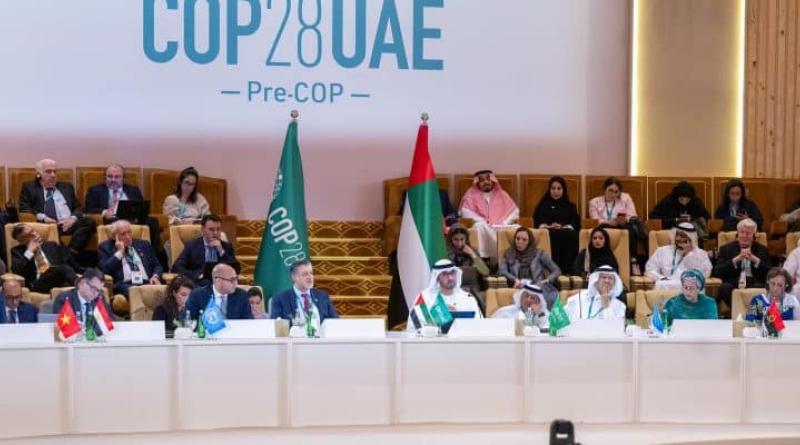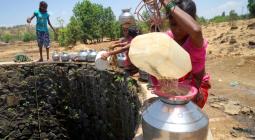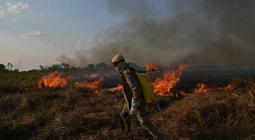After the agreement on financing losses and damages, what are the challenges for COP28?

The 28th United Nations Conference of the Parties on Climate Change (COP28) will undoubtedly be one of the most important in history after COP21 in 2015 in France. The Dubai meeting opens on November 30 with two key topics: the global assessment of the Paris Agreement and the finalization of the debate on the “loss and damage” fund. Objective, to allow a new start in relations between the North and the South to jointly counter climate change.
The 28th United Nations Conference of the Parties on Climate Change (COP28) opens this Thursday, November 30, 2023 in the United Arab Emirates (UAE). During 12 days of debate and negotiations, representatives of 196 states and the highest international organizations such as the European Union (EU) once again took part in this decisive game for the future of the planet. The stakes are doubly major for this edition. Firstly because the first Global Stocktake, aimed at evaluating the Paris Agreement adopted at COP21 in 2015, will be presented there for universal validation. Then, because the participants in Dubai will complete discussions on the details of the loss and damage fund ratified in November 2022 as part of COP27 in Egypt.
Regarding the Paris Agreement, it will be a question of examining in depth its implementation by the 174 signatories including South Africa, Namibia, Algeria, Benin, Botswana, Burundi, Burkina Faso, Cameroon and Ivory Coast, to name only these African countries. As a reminder, this international treaty recommends “keeping the increase in global temperature below 2 degrees Celsius compared to pre-industrial levels and continuing efforts to further limit the increase in temperature to 1.5 degrees Celsius” . This approach should make it possible, for example, to avoid more frequent and more severe heat waves and precipitation.
Where is the Paris Agreement?
However, eight years after the French COP meeting, the Intergovernmental Panel on Climate Change ( IPCC ) estimates that the current pace is taking us straight towards +3 degrees Celsius at the end of the current century. Indeed, the energy transition is the universal solution recommended by analysts for the benefit of renewable energies. Except that many countries are not ready to give up coal, oil and gas which accentuate global warming. And this is the main blockage of the Paris Agreement. On five continents, hydrocarbons still dictate their law with ever higher levels of pollution.
Senegal, for example, does not plan to turn its back on its gas while the Democratic Republic of Congo (DRC) is rapidly exploiting its mining potential. Germany, industrial champion of Europe - which has a vast ambition of carbon neutrality by 2030, has still reactivated up to 12 coal-fired power plants in the third quarter of 2022 "to deal with the exacerbated energy crisis" by the war in Ukraine. A plan which undermines the progress made in Glasgow and does not please the negotiators of the next COP28 at all. The first World Assessment will therefore not be a cakewalk for all the delegations, especially since the host kingdom is itself criticized for oil extraction.
The COP of the energy transition?
However, some nations have invested massively in solar and hydroelectric power plants since 2015. Their efforts in diversifying the electricity mix should be highlighted at the Dubai conference with the aim of encouraging laggards to follow suit. In its report entitled Global Energy Architecture Performance Index, the World Economic Forum ranks Ethiopia (94%), where the controversial construction of the continent's largest dam continues , Iceland (90%), Kenya (86%) ), Nepal (84%) as well as Paraguay (80%).
Read also - COP27: the crucial issue of renewable energies for the development of Africa
Also note that the United States of America, which generates 15% of greenhouse gas (GHG) emissions - as the leading economic power - withdrew from the Paris Agreement at the instigation of Donald Trump in 2017 before reinstatement in 2021 under the Joe Biden era. The voice of John Kerry, the American special envoy for the climate should therefore weigh in the negotiations, in particular those relating to the geopolitics of green hydrogen but more on the new world economic order envisaged to finance the ambitious recommendations of the Agreement of Paris on the climate.
The eternal issue of climate financing
The COP27 in Egypt made it possible to move forward on the issue of climate financing with the creation of the climate loss and damage fund for southern countries, most of which are African. The meeting in Sharm-el-Sheikh therefore closed with the commitment to develop the details of this financial mechanism in the United Arab Emirates. Concretely, the 197 parties to the United Nations Framework Convention on Climate Change (UNFCCC) will absolutely have to agree on the amount of the new pot, who will finance it and how much. A difficult equation when we know that even the choice of the World Bank to temporarily shelter it was strongly contested by the countries of the Global South. Moreover, the institution based in Washington DC has still not managed to reform itself to fairly respond to the challenges of a new world economic order.
There are also demands which are not the least important and arouse keen interest. This is the case for France for which there is no question of China and the Gulf countries (Saudi Arabia and Qatar, among others) escaping the new fund due to their high carbon footprints. But all this cannot be explored without the Copenhagen agreement resurfacing in Dubai. Indeed, the debate on global climate finance starts from the COP15 that Denmark hosted in 2009. States had committed to mobilizing 100 billion dollars per year to “help developing countries gradually reduce their gas emissions greenhouse effect ” by 2030.
A promise that has not really been respected to date. In 2020 for example, contributions were of the order of 83 billion, according to the Organization for Economic Co-operation and Development (OECD). In the meantime, financing needs have increased considerably in view of the energy consequences of the war in Ukraine, natural disasters and the inflationary surge across the entire globe. Faced with these international issues, climate negotiators will therefore have no choice but to find compromises at all points of friction, from November 30 to December 12.






